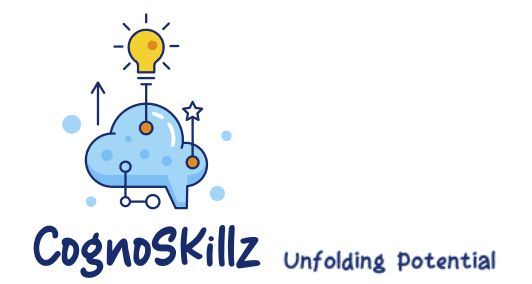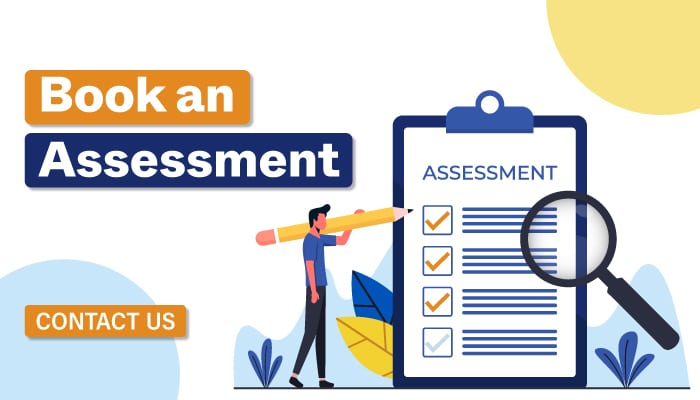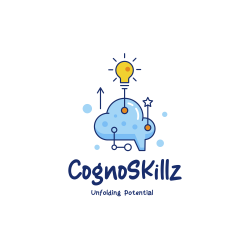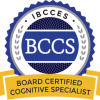TEST ANXIETY - BEATING THE JITTERS
Wednesday mornings are usually a little more chaotic in Mariam’s life. Wednesdays bring with them an additional ‘chore’ of sending her 12-year-old daughter Zara to school on her weekly class test day! Zara, an otherwise cheerful, active, and intelligent preteen was used to being the teacher’s pet thanks to her consistent all rounded performance in school. Middle school brought many changes in Zara’s life; the foremost being section shuffling. She unwillingly ended up with a completely new group of children. Away from her old classmates and comfort zone she realized soon after that there were many more students in class who were all-rounders just like herself. The teachers seemed to be giving other students more attention than her. She also saw others doing better than herself in some subjects. All this left Zara extremely restless and anxious. She became withdrawn and reserved. She refused to come out of her room at home and would even avoid play time in the evenings. She would look for reasons to skip school, particularly on Wednesdays just to avoid her weekly tests for fear of underperforming. Over time her health and appetite started getting affected too, leaving her mother extremely disturbed.
UNDERSTANDING TEST ANXIETY
Test anxiety is a psychological disorder in which a person experiences distress before, during, or after a test or other evaluation to the point where this worry impairs performance or interferes with regular learning. Test anxiety is actually a subtype of performance anxiety, which is a state that some people experience when they are under pressure to perform well or when the stakes are high.
SYMPTOMS
Although the symptoms of test anxiety may vary from student to student, the following is a list of potential signs you can encounter:
- Headache, nausea, heavy sweating, quickness of breath, palpitations, and dizziness are some of the physical symptoms.
- Stress, dread, helplessness, and disappointment are some of the emotional symptoms. Negative thoughts include brooding on previous failings as well as feelings of inadequacy and futility plague the mind.
- Behavioral/cognitive symptoms include procrastinating, having trouble focusing, thinking unfavorably and comparing one’s own abilities to others and feeling despondent.
CAUSES OF TEST ANXIETY
Sometimes, children experience fear and anxiety due to unknown persons, difficult conditions, and even new scenarios. For students of all ages, test anxiety, or the fear of taking tests, is a typical source of distress. Fear of failure, underpreparedness, poor performance history in the past or even trying to be a perfectionist can cause acute anxiety.
EFFECT OF TEST ANXIETY ON STUDENT’s ACADEMIC PERFORMANCE
Children that experience anxiety feel uneasy and are distracted from their learning, as it interferes with other cognitive functions. The amygdala, often known as the “fear center” of the brain, has been the subject of much research, and it has been discovered that children who experience high levels of anxiety have a larger amygdala than children who experience low levels of worry. According to the researchers, this area of the brain is more connected to other parts of the brain that are involved in control, perception, and attention. Which is why anxiety affects these areas more.
REWIRING AN ANXIOUS BRAIN WITH BRAIN TRAINING
The good news is that the brain is capable of self-rewiring! The nerve cells in the brain can change and modify their activities. Parents can assist in easing their children’s anxieties by introducing them to the fascinating world of brain training, which can not only be a ton of fun but also go a long way in helping them develop stronger cognitive skills by forming new neural pathways permanently, leading to success in school and life.
CUSTOMIZED BRAIN TRAINING PROGRAMS AT COGNOSKILLZ
Brain training helps students think more quickly, learn more easily and boost their overall cognitive performance. Cognoskillz achieves these results through exceptional one-to-one brain training programs from BrainRx. The training gives their brain a workout through mental drills, games, and exercises that target specific cognitive skills.
Our individualized programs concentrate on client specific brain training objectives, For example, if a student is preparing for a test that emphasizes heavily on Auditory processing, then we can focus training this specific skill set.
Each learner starts by taking a Brain Skills Assessment. This tells us which skills could benefit from one-on-one training. We then create a custom brain training plan to target and strengthen these skills. Book an assessment and take a step forward to making your loved one’s life easier with sharper and stronger cognitive skills.
Designed by : Webcap



